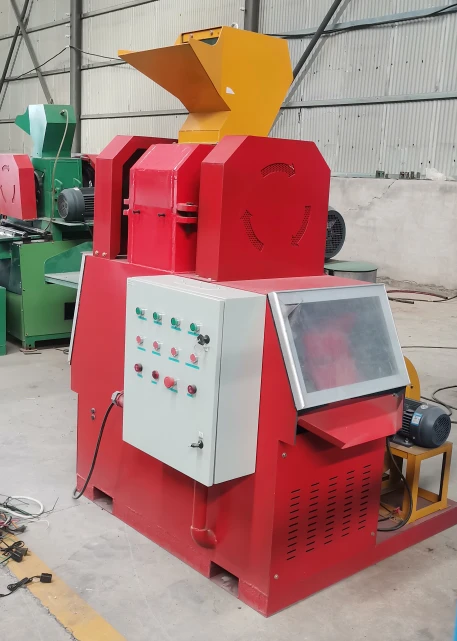
10 月 . 01, 2024 09:52 Back to list
The Role of Steel Scrap Processing Plants in Sustainable Development
In an increasingly eco-conscious world, the importance of recycling and waste management cannot be overstated. Steel scrap processing plants play a pivotal role in the circular economy by not only recycling scrap steel but also contributing significantly to environmental sustainability. The process involves collecting, processing, and repurposing used steel materials, thereby reducing the consumption of natural resources and minimizing environmental pollution.
Steel scrap processing begins with the collection of discarded steel products, which can range from old vehicles and appliances to construction materials. Once collected, these scrap materials are transported to processing plants where they undergo various procedures to prepare them for recycling. The initial step involves sorting the scrap based on type and quality. The differentiation is crucial since the metal's composition affects its recyclability.
After sorting, the scrap steel is cleaned to remove any contaminants such as dirt, grease, and other non-metal materials. This cleaning process often involves mechanical techniques and sometimes chemical treatments to ensure that the steel is in optimal condition for melting. Once purified, the scrap is then cut into smaller pieces using heavy machinery, optimizing it for the furnace.
The heart of any steel scrap processing plant is the melting furnace. In this stage, the cleaned and shredded scrap is melted at high temperatures, allowing for various grades of steel to be produced. The melting process not only recycles the steel but also reduces energy consumption when compared to producing new steel from iron ore. Studies have shown that recycling steel can save up to 74% of the energy required to produce steel from virgin materials, making scrap processing a more energy-efficient option.

After melting, the molten steel is cast into various shapes such as billets, slabs, or ingots, which can then be transformed into new steel products. These products can include everything from construction beams and automotive parts to household appliances. By recycling steel, these processing plants help reduce the demand for raw materials, thus preserving natural resources and lowering carbon emissions associated with mining and manufacturing.
The environmental benefits of steel scrap processing plants extend beyond just energy conservation. By diverting steel waste from landfills, these facilities play a crucial role in reducing landfill overflow and minimizing soil and water contamination. Furthermore, the recycling of steel significantly lowers greenhouse gas emissions—about 1.5 tons of carbon dioxide emissions can be avoided for every ton of recycled steel. This contributes to the global effort to combat climate change and achieve sustainability goals.
Steel scrap processing not only supports environmental sustainability but also serves as a vital component of the economy. The industry provides numerous jobs, both directly within recycling plants and indirectly through associated sectors such as transportation and manufacturing. It fosters economic growth and contributes to local communities by promoting responsible consumption and waste management practices.
As the demand for steel continues to rise globally, the necessity for efficient scrap processing has never been more critical. Advances in technology and increased awareness of environmental issues are driving innovations within the industry, leading to more efficient recycling processes and higher quality end products. Stakeholders, including governments, businesses, and consumers, must collaborate to enhance recycling efforts and support policies that promote the importance of steel scrap processing plants.
In conclusion, steel scrap processing plants are not just facilities for recycling; they are vital contributors to a sustainable future. By transforming waste into valuable resources, these plants play an essential role in conserving energy, protecting the environment, and fostering economic development. Investing in and supporting this industry is crucial for building a circular economy that prioritizes sustainability for generations to come.
Latest news
Unveiling the Power of Eddy Current Separator
NewsSep.25,2024
Transform Your Home Recyclin:home metal shredder
NewsSep.25,2024
The Future of Waste Management with Recycling Line Picker
NewsSep.25,2024
The Benefits of a Metal Recycling Plant
NewsSep.25,2024
Revolutionize Material Separation with Onwang Technology
NewsSep.25,2024
Innovative Waste Management: Unveiling the MSW Sorting Plant
NewsSep.25,2024